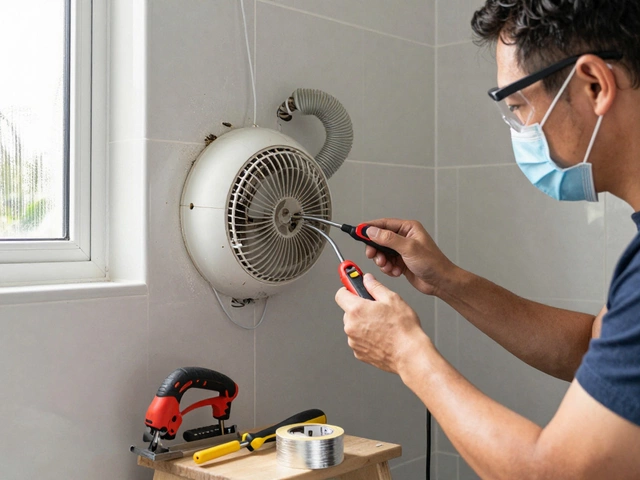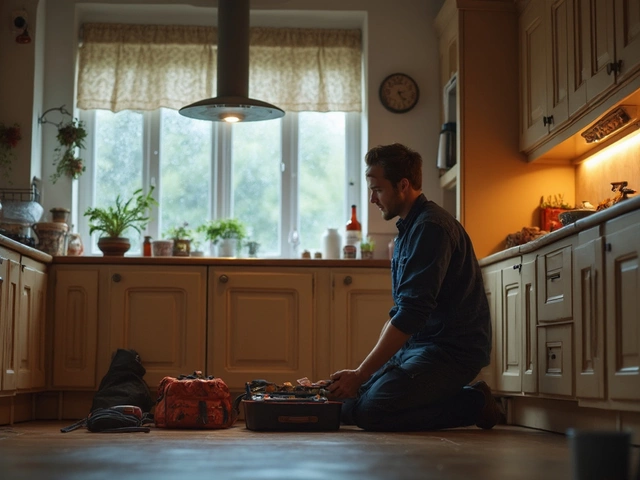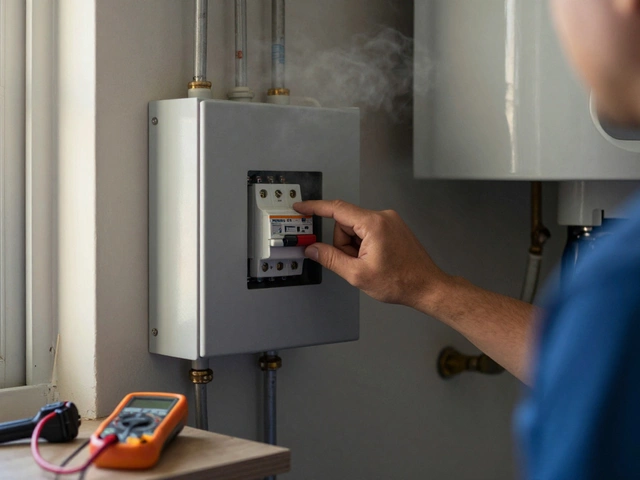No one really thinks about their water heater—until it stops working. Suddenly, daily routines fall apart. So, how do you know if your hot water heater is actually dying or just being dramatic?
Start with your water temperature. If your showers are turning lukewarm and you haven’t fiddled with the settings, something’s off. Look for rust or discoloration in your hot water. Weird, metallic-tasting water or rusty streaks can mean there's corrosion inside the tank. Trust me, you don’t want that mixing with your morning routine.
Don’t ignore wet spots or small puddles under your water heater. Even a little leak will only get worse with time. Larger leaks can mess up your floors and invite mold. And here’s a tip: sometimes, what looks like a tiny drip ends up turning into a disaster when you least expect it. Always check the area around your heater regularly.
- Clear Signs Your Water Heater Is Failing
- How Old Is Too Old?
- Leaks, Rust, and Water Issues
- Weird Noises You Shouldn’t Ignore
- When to Repair vs Replace
Clear Signs Your Water Heater Is Failing
You know that feeling when your shower suddenly turns cold out of nowhere? That’s usually the first clue something’s wrong with your hot water heater. But the warning signs don’t stop there.
Here’s what you want to look out for:
- No hot water or not enough of it: If your heater struggles to keep water warm or runs out quickly, it’s not working right. It might be the heating element or, honestly, the whole unit just giving up.
- Water looks rusty or cloudy: If you notice brownish water only when you run the hot tap, that’s likely rust coming from the inside of the tank. Murky water sometimes means there’s sediment build-up on the bottom stealing space and efficiency.
- Popping or rumbling sounds: Weird noises aren’t normal. That’s often sediment swirling around or even hardening at the bottom. This makes your system less efficient and wears it out faster.
- Water pooling near the heater: Small leaks add up fast. Even a tiny wet patch can hint at a growing internal crack or loose valve.
- Heater age: If your unit is over 10 years old, it’s nearing the end of its average lifespan, especially if you’ve never serviced it.
Here’s a quick look at why these red flags matter:
| Sign | What It Means |
|---|---|
| Water doesn’t stay hot | Failed heating element or tank issues |
| Rusty water | Corrosion inside tank or pipes |
| Loud noises | Sediment build-up, overheating |
| Visible leaks | Internal tank crack or bad valve |
| Over 10 years old | At higher risk for total failure |
Don’t wait until you’ve got water all over the floor. The sooner you spot these signs, the less likely you’ll be facing a total breakdown—usually at the worst possible moment. A little awareness can save you from scrambling for a cold shower fix when you least want it.
How Old Is Too Old?
A hot water heater isn’t designed to last forever—most don’t even make it to their teenage years. The cold, hard truth? The average lifespan of a traditional tank water heater is hot water heater, which clocks in around 8 to 12 years. That’s straight from the U.S. Department of Energy. Tankless models can last a bit longer, sometimes up to 20 years, but even those get tired out eventually.
So, how do you figure out your water heater’s age? If you’re like me, you probably don’t remember installing it and can’t find a dusty receipt from years ago. Here’s what you can do:
- Check the serial number on the label, usually found on the upper section of the tank.
- The serial number often includes the manufacture date—commonly coded, but you can look it up online using the brand’s chart.
- If all else fails, search the brand and model, then call the manufacturer with your serial number for help.
Don’t just assume it’s fine because it’s still heating water. As these things age, efficiency drops and the risk of leaks or bursts shoots up. “A water heater’s failure rate rises dramatically after 10 years,” says Consumer Reports.
“After 10 years, nearly 30% of tank models experience problems that can cause property damage. If yours is going on 12 years or older, replacement is usually safer than gambling on it.”
If your unit is inching past that decade mark, it’s time to be proactive. Waiting until the tank fails could mean cold showers, damaged floors, and expensive cleanup. Swap it out before it becomes another home emergency.
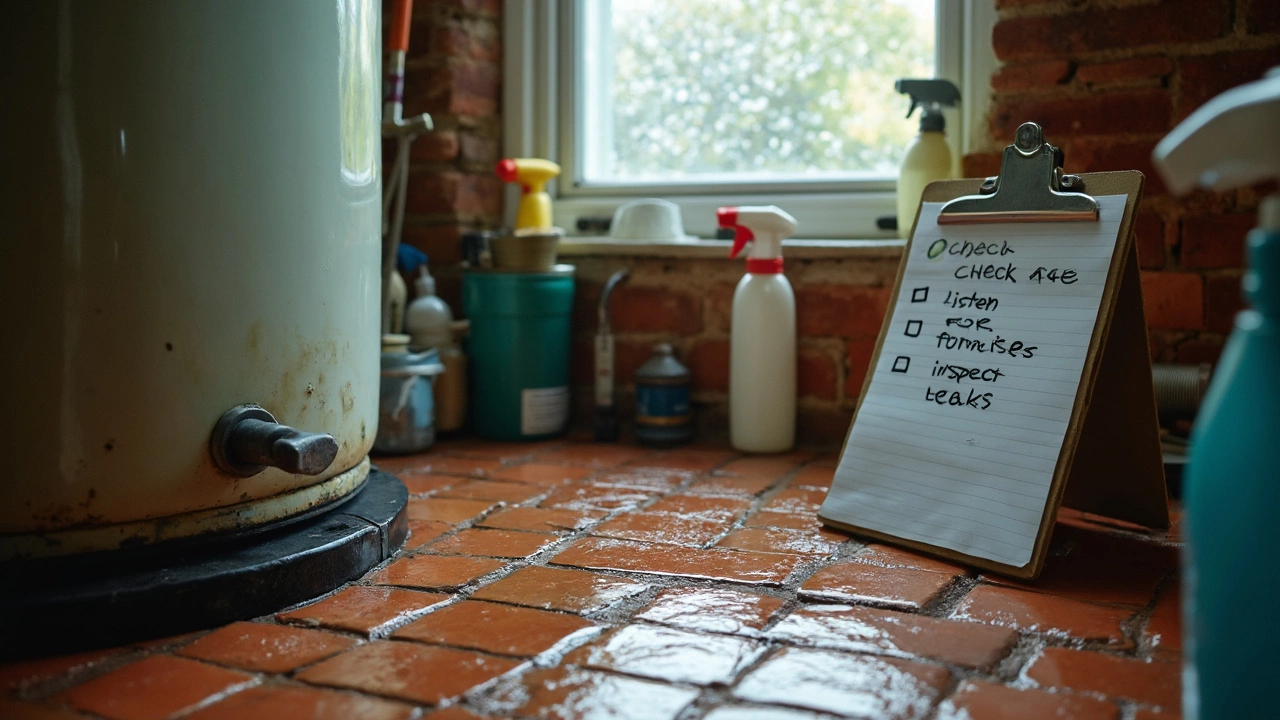
Leaks, Rust, and Water Issues
Spotted water pooling around the base of your heater? That’s a red flag you can’t ignore. Leaks almost always signal trouble, usually because the inside of the tank has started to corrode. Once that happens, no patch job is going to hold for long. I once tried to throw a towel under Max’s water bowl when it leaked, but a hot water heater’s leak is way more serious. It’ll only get worse.
Rust is the next big warning. If you see rusty water coming from your hot tap, or if there’s rust on the actual tank or pipes, it’s usually a sign of corrosion inside. This doesn’t just look bad—it means your unit is probably eating itself from the inside out. Hot water heaters have something called an anode rod that’s supposed to stop rust, but once it’s worn out, rust starts creeping in fast.
Let’s talk about water quality. If your hot water tastes metallic, smells odd, or starts looking cloudy, don’t brush it off. Nasty water usually means the tank’s coating is breaking down or that minerals are building up. Hard water areas will see this a lot quicker. Plus, buildup inside the tank means the heater works harder, wears out faster, and sends your bills up.
- Check for any wet spots or drips around your heater every week, especially if the heater is old.
- Drain a bucket of water from the bottom valve quarterly. If it’s full of reddish gunk or flakes, corrosion is probably inside your tank.
- Look for rust on the pressure relief valve and water inlet/outlet pipes. External rust can mean trouble inside, too.
Some numbers to keep in mind: According to a 2024 survey by the Plumbing-Heating-Cooling Contractors Association, about 70% of tank-style water heaters fail due to leaks linked to corrosion. That should tell you how common and serious these signs really are.
| Warning Sign | Likely Cause | What It Means |
|---|---|---|
| Leaks at bottom | Internal tank corrosion | Time for replacement |
| Rusty water | Anode rod worn out, tank rusted | Looks bad, tank near end of life |
| Cloudy or foul water | Mineral buildup, tank coating failure | Decreased water quality, more wear on parts |
If you spot these issues, don’t wait around. These are textbook signs that your hot water heater is living on borrowed time.
Weird Noises You Shouldn’t Ignore
Your water heater isn’t supposed to sound like a popcorn machine. If you’re hearing banging, popping, or rumbling from the tank, don’t brush it off. Those sounds usually mean there’s a problem with sediment. Over time, minerals settle at the bottom of the tank, especially if you have hard water. When water heats up, that layer of junk hardens and makes noise as steam bubbles up through it.
This isn’t just an annoying racket. Sediment buildup actually makes your hot water heater work harder and less efficiently. It has to use more energy to heat the water, and you’ll probably see that on your next energy bill. Worse, all that extra stress shortens the tank’s life. I once ignored a rattling heater for months and ended up replacing it a lot sooner than I should have. Lesson learned.
If you notice high-pitched whining or loud hissing, take it seriously. That could point to overheating, pressure issues, or even a failing heating element. A screeching or whistling sound sometimes means there’s a problem with the valves—sometimes they’re only partly open, or there’s pressure building up where it shouldn’t.
Here’s what to do if your water heater starts getting noisy:
- Flush the tank once a year to clear out sediment. Many plumbers recommend this even for newer units.
- Check for any loose heating elements or connections—sometimes parts rattle when they’re about to go.
- If you’re hearing popping or banging even after you flush it, your heater could be reaching the end of its usable life.
- Whining and screeching might mean you need a pro to check for pressure or valve issues. Don’t ignore those—the tank can become dangerous.
When in doubt, call a water heater repair pro. Catching these noises early gives you a better shot at a simple fix instead of a total replacement.
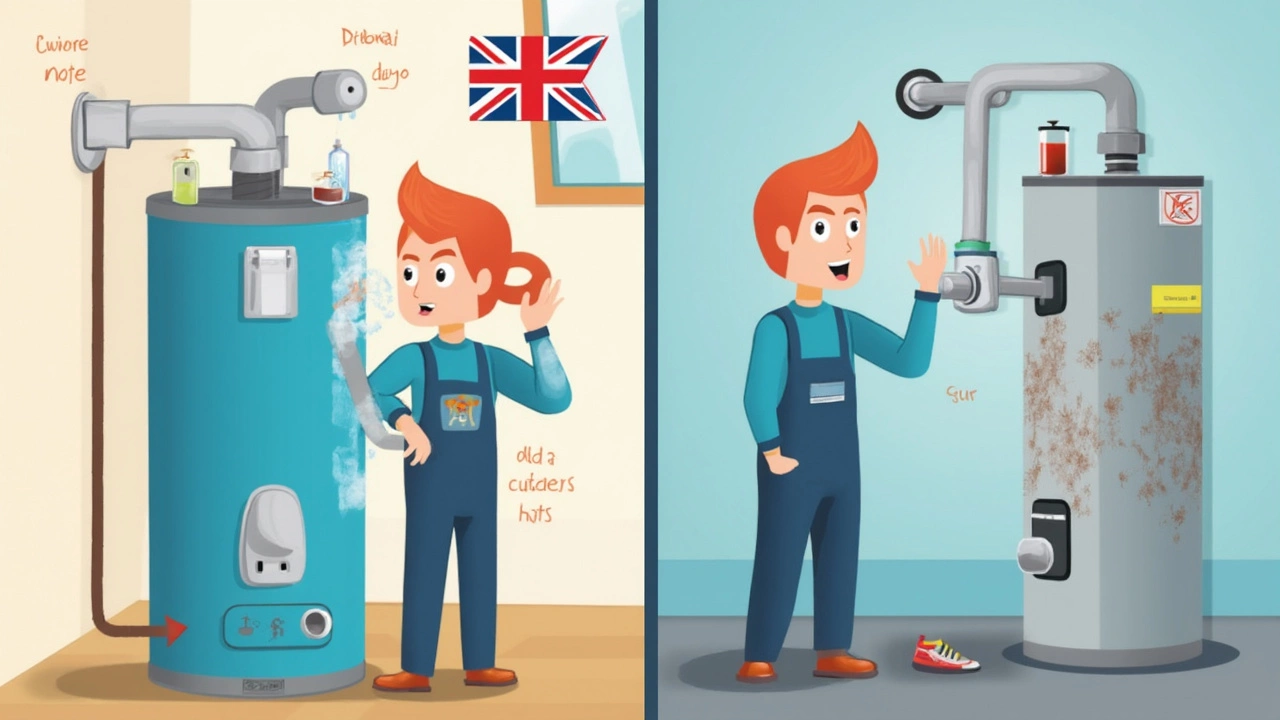
When to Repair vs Replace
Deciding whether to fix your hot water heater or put it out to pasture isn’t always clear, but there are some rules of thumb you can use. First, check your heater’s age. Most tanks last around 8 to 12 years. If yours is pushing past that, repairs might just buy you a little time—not much more.
Not sure what to do? Check out these situations:
- Minor fixes like replacing a thermostat, pilot light, or heating element usually don’t break the bank and can add a few more years to your heater’s life.
- Major leaks from the tank itself mean it’s game over. Tanks aren’t meant to be welded or patched.
- Rusty water that shows up only when you use hot water is a big red flag. That usually means there’s corrosion inside the tank—it won’t get better.
- Weird noises getting louder over time often signal major sediment buildup. Flushing sometimes helps, but if it keeps coming back, that’s a sign the tank is wearing out.
- Rising energy bills with no change in hot water use? Older heaters lose efficiency fast; repairs might not solve that.
If repair costs creep up toward half the price of a brand new heater, experts say replacing is smarter for your wallet over time. Here’s a quick side-by-side:
| Repair | Replace |
|---|---|
| Thermostat issues Pilot light out Small part failure | Tank leakage Severe rust Age 10+ years Skyrocketing energy costs |
Don’t forget to factor in your family’s needs. Got a growing bunch or love long showers? Modern heaters can be way more efficient and reliable than aging models. If you’re constantly getting cold showers, give serious thought to replacing your unit instead of pouring more money into short-term fixes.

